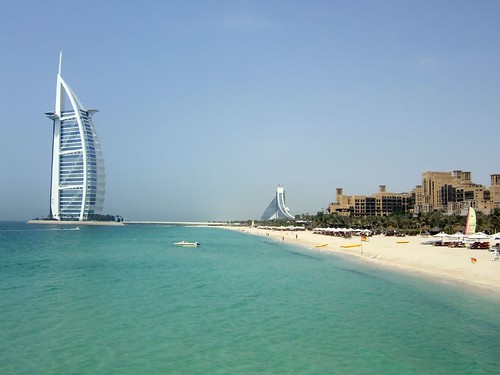 Insight Down South
Upper middle class folks are living in style
Insight Down South
Upper middle class folks are living in style
Seah ChiangNee
The Star
Malaysia
Saturday, 28 November 2009
In recent months, I have had a few glimpses of how far Singapore’s upper middle class has moved ahead in the richest city in South-East Asia.
The chance came as I was searching to rent a home, looking behind closed doors in the presence of an agent.
After visiting some two dozen homes in several estates, a picture soon emerged of how well the upper gentry — roughly a third of the population — has benefited from the island’s prosperity.
The upper middle class is, of course, a loose socio-economic offshoot of a broad middle class population.
Who makes up this group? Generally, they include professionals, businessmen, managers, executives and, of course, high-earning senior civil servants and politicians.
In my hunt, I have met home-owning doctors, administrators and shipping directors, with wives, more often than not, in similar professional strata.
(The middle, middle class earners are mostly in sales, technical and clerical work while the working class includes manual workers, cleaners and labourers.)
One family wanted to sell me its well-heeled, three-storey terrace house for S$1.6 million (RM3.9million), with one proviso — delivery only after December. That was when the whole family would resettle in Australia.
The upper middle class (UMC) is defined not only by its earnings or wealth but also by education, social influence and lifestyles.
To me, the extent this group has advanced economically in the past decade or so has been phenomenal. I had realised it only in general terms, but too substantially.
Singapore’s UMC, of course, does not include the super-rich or the tycoons (who are in a class of their own) or wealthy foreigners who have been attracted to its shores.
The UMC is most likely a millionaire, living in a luxurious condo or a landed property, a scarce commodity on this land-short island.
Increasingly, the UMC is gunning for landed houses. There are only 68,300 landed houses, or 29% of the total private properties in Singapore — and future growth is minimal.
The upper middle class person has a car and a maid — possibly even two of each — and his family takes annual overseas trips every year.
His growing emergence is the result of years of rapid economic expansion and an education system that pushed out tens of thousands of graduates ever year, particularly women.
The economic power of the female professionals is one of the major factors for the phenomenon.
The lifestyles of many of the residents are far more lavish than I had realised.
Staggering to me is the number of owners who spent S$150,000 to S$600,000 (RM366,000 to RM1.4mil) refurbishing or rebuilding their homes, adding one or two storeys. It has changed the landscape.
This sort of money could buy a bungalow even in suburban America, let alone in most parts of Asia. Not many UMC folk have swimming pools or spas or are chauffeur-driven but they are not short of other luxuries.
For lack of a better phrase, I’d call them Singapore’s “poorer class of millionaires”.
In a two-storey home, I saw various family members watching cable television on five 37-inch LCD sets in their own rooms. One was attached next to the dining table so that none needed to miss any programme while eating. In front of the house were parked two cars.
When I mentioned it, a cable TV technician laughed: “You’re behind time. It’s quite common now. I just installed a set in a bathroom.”
They send their children to study abroad, own several mobile phones, one for each family member (except possibly grandmum), and invest heavily in the latest high-tech gimmickry.
At one restaurant, a friend of mine saw a family of four eating a meal that included premium New Zealand beef and prime ribs for the children that cost about S$25 (RM61) each.
Some of the kids eat their school lunch at Japanese restaurants, update their mobile and table-top technology regularly — and go on European trips with classmates.
Finance professor Francis Koh of the Singapore Management University was quoted by a newspaper as saying: “The profile of the wealthy is changing; the wealth is filtering to younger people.
“Today’s rich Singaporeans are not only more willing to spend, but want to be seen doing so.”
The really wealthy, estimated at 8-10%, are described as having at least S$1mil (RM2.4mil) in financial assets. In the past few years, Singapore has recorded more new millionaires than any other country in the world.
Next in line is the UMC; some economists estimate some 19-20% of Singaporeans belong to this group, with the broad middle class making another 37-40%.
Estimates differ, sometimes widely, until a proper, detailed survey is carried out.
On average, these high-earning individuals earn S$7,000 (RM17,000) a month, possibly much more.
The third part of today’s Singapore is the lower middle class and the poor, the republic’s biggest potential for social friction. They make up the bottom 30% of society.
In several previous columns, I have written about the widening gap between the rich and the poor and the public discontent that it has stirred.
Class is often a sensitive and subjective matter in every country, including Singapore.
To prevent tensions from simmering, the government wants to avoid (not always succeeding) any excessive flaunting of wealth, especially by well-paid government leaders.
Prime Minister Lee Hsien Loong warned: “If we let the politics of envy drive a wedge between us, our society will be destroyed and all will suffer.
"That must never happen."
Originally Posted by Reporter







 Reply With Quote
Reply With Quote







 US Economy in Shock !!!
US Economy in Shock !!!  ...
...














